Biden's plan to join hands with the EU against China doomed to failure
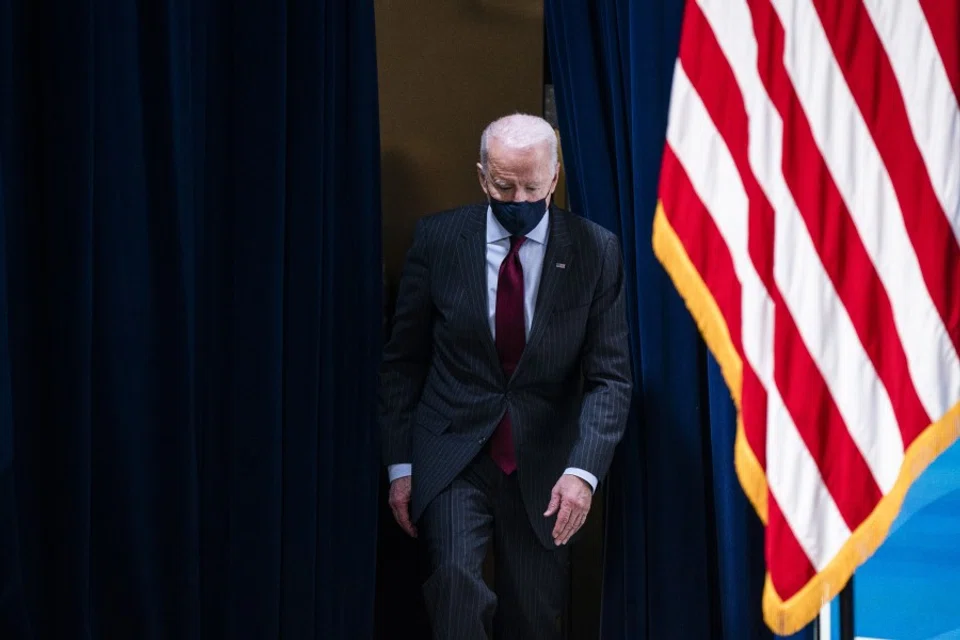
In his first foreign policy speech following his inauguration, US President Joe Biden called China the "most serious competitor" to the US. He said that the US will "compete from a position of strength by building back better at home, working with our [its] allies and partners". Given that the EU is the US's biggest ally, whether the US can work with its allies against China depends on whether the US manages to join forces with the EU.
On 28 January 2021, US Secretary of State Antony Blinken spoke with the EU's High Representative for Foreign Affairs and Security Policy Josep Borrell to repair damaged US-Europe relations and discuss common challenges. However, while the readout by the US Department of State highlighted that both "agreed to continue strong US-EU cooperation on issues related to China", the statement by the EU did not mention China. The different narratives of the US and EU on the same incident reflects that the Biden administration's efforts to join hands with the EU against China is destined to fail.
Different interpretations of the China threat
First, the differences between the US and the EU's perceptions of China imply that their goals for countering China do not converge.
The US sees China as a threat largely in terms of politics and ideology; it feels that China threatens the free democratic society of the West and is attempting to usurp the US's position as the leader of the world. Former US Secretary of State Mike Pompeo felt that China's ruling party threatened US values and way of life, and that the Chinese Communist Party (CCP) posed an all-round challenge to the US. To the US's elites, not only are the Chinese certain of the US's decline and China's rise, China also intends to spread its authoritarian system, aggressive diplomacy, and military presence to the entire world.
While the EU holds that China is its "systemic rival", its definition of a "rival" is largely from an economic point of view.
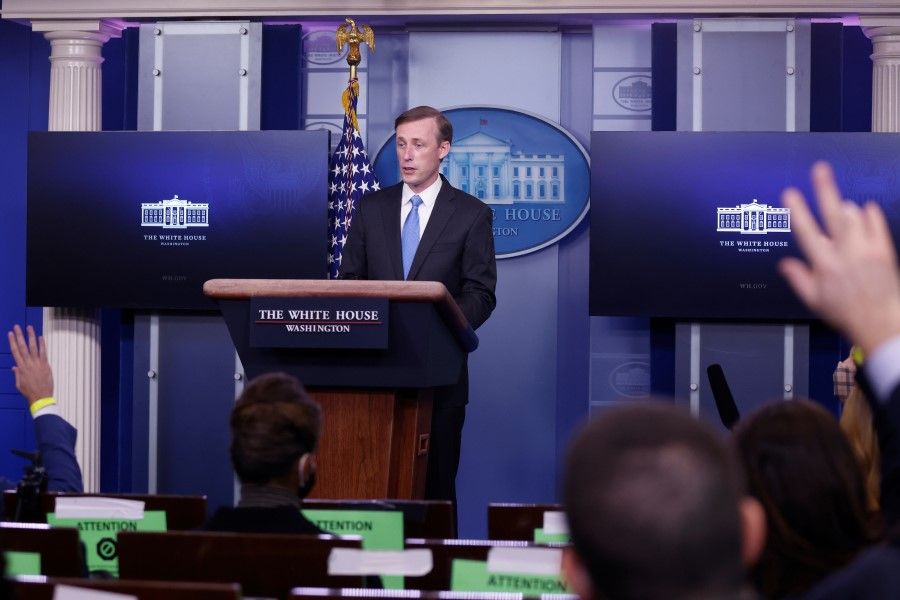
On 29 January 2021, US national security adviser Jake Sullivan said in Washington that China is one of the US's biggest challenges, and that China is "pointing to dysfunction and division in the United States and saying - take a look at that, their system doesn't work, our system does". More than once, Chinese leaders have declared that China can provide an alternative growth model to the democracy and free market that the US has been helming for decades. And given that the US urgently wants to eliminate the China threat, containing China is the sure option, as evidenced by the declassified US Indo-Pacific strategy framework.
While the EU holds that China is its "systemic rival", its definition of a "rival" is largely from an economic point of view. The EU believes that the economic model led by the Chinese government has a negative impact on international trade and open markets. Hence, it has not recognised China as a "market economy" and has raised its case against China's forced technology transfers at the World Trade Organization (WTO). However, the EU does not feel the overwhelming threat posed by China to Western democracies. Western Europe was firmly on the side of the US during the Cold War, not because it was happy to accept US leadership, but because its security was threatened by communist expansionism, and it needed American protection against the Soviets.
Hence this era is not marked by a Cold War between East and West - even if there exists a Cold War between China and the US. It is instead marked by economic globalisation.
'Socialism with Chinese characteristics' directed inwards
Although the EU does criticise China's human rights issues and is put off by China's attempt to spread authoritarian values by "telling China's stories" (讲好中国故事), the EU member states have not resolved to overthrow the Chinese government because of it. Moreover, while the values that China is spreading are intended to change the West's perceptions of China, they have also bolstered a strong sense of patriotism among the Chinese in China and strengthened the country's national security. This is the reason why socialism with Chinese characteristics is hugely different from the previous Soviet model.
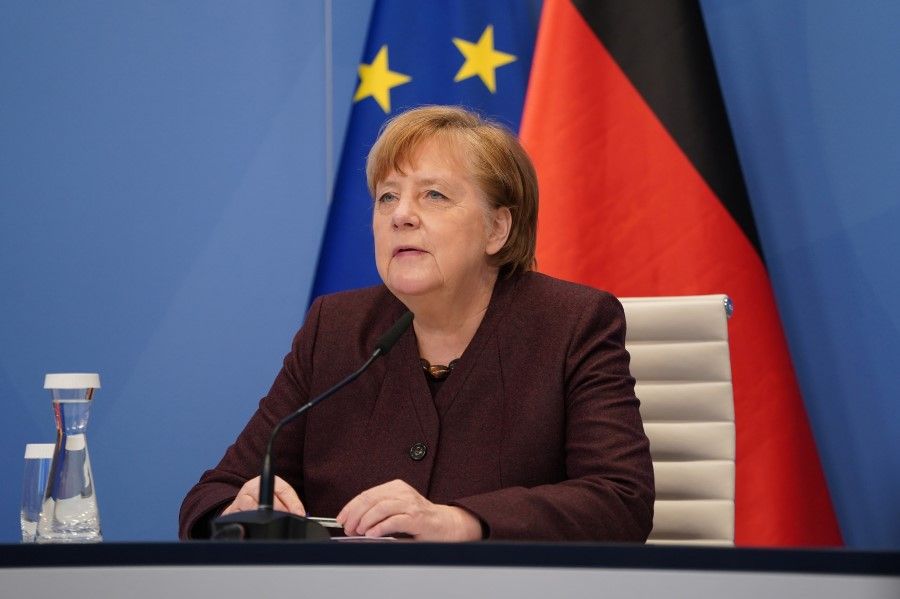
Europe sees hope in China's economic rise and enormous market, and this is the economic context for the EU's repeated calls for cooperation with China. Hence this era is not marked by a Cold War between East and West - even if there exists a Cold War between China and the US. It is instead marked by economic globalisation. One can then understand why German Chancellor Angela Merkel did not choose sides between China and the US in her speech at Davos on 26 January 2021. Germany puts economic interests above values, and hopes to develop economic cooperation with China, rather than fight with China over human rights issues.
On 28 January 2021, the Frankfurter Allgemeine Zeitung reported that German Foreign Minister Heiko Maas of the Social Democratic Party of Germany and the Union parties had proposed taking a tougher stance on China.
Maas felt that Germany and Europe should discuss and coordinate its stance on China with the new US administration. At first glance, it seems that Germany is going along with Biden in resisting China; but another look would show that Germany's aims are limited to the economy. When it comes to foreign policy towards China, the Union parties are asking its cross-Atlantic partners to get Beijing to abide by international rules and standards, especially against discriminatory policies on foreign competitors.
The EU's economic calculations win out
This is fundamentally different from White House press secretary Jen Psaki's definition of China-US relations as "strategic competition". The US sees China as its number one threat, while the EU sees the China threat as limited to the economy. Hence, the strategies of the US and the EU towards China will not be aligned. In the US strategy, competition outweighs cooperation, but in the European strategy, competition and cooperation can at least coexist, or it can exert pressure on China together with the US to open up the Chinese market. The differences between the US and European perceptions of China make it difficult for them to agree on their respective responses to China.
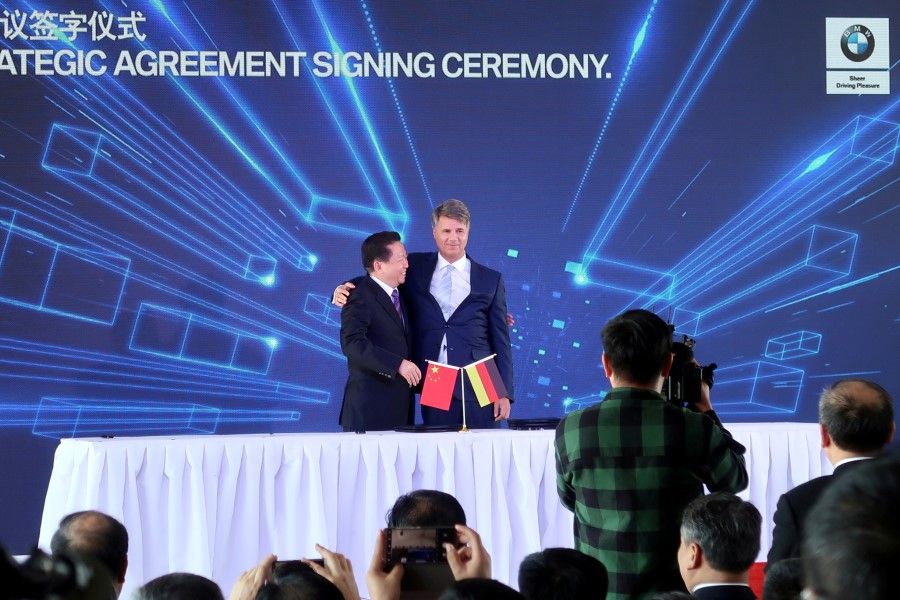
Second, the China-EU investment deal is one example of Biden's failure in joining with the EU against China. Why did the investment deal - which took seven years to negotiate - see results before Biden took office? Why did China choose this timing to give in to the EU? If the US did not engage in the trade war with China, and if China-US relations did not deteriorate, leading to a reset of the global supply chain, would China give in to the EU? The deterioration of China-US relations is an important external factor that drove the successful negotiations of the China-EU investment deal.
The EU used China's diplomatic difficulties to exert pressure on China, while China was also aware of the threat of Biden joining with the EU against it. China was thus in a hurry to insert itself in the gap between the EU and the US and lock in the EU's China policy before Biden took office.
The China-EU investment agreement is a warning to Biden that the EU is an ally of the US, but it is not a firm ally.
When the media reported that the China-EU investment agreement was near to fruition, on 21 December 2020, Jake Sullivan hoped the EU would not rush into signing it, tweeting: "The Biden-Harris administration would welcome early consultations with our European partners on our common concerns about China's economic practices." And on 27 January 2021, Sabine Weyand, director general of DG Trade, European Commission, said the US had achieved less in their dealings with China even after a trade war, and the EU had to "intelligently...work with the Chinese". She asked if an "ideal world" was one where "we transform miraculously through an investment agreement, China, into a liberal democracy and open market economy?"
Weyand's comments show that the EU does not believe that US pressure on China has brought much benefits to the US, while the EU's clever cooperation with China has led to a real opening up of China's market. However, she did not give credit to US pressure for creating the conditions for European pressure on China; on the contrary, having gotten its desired Chinese market, the EU is ready to abandon the US. Heiko Maas defended the move, saying that it was "not at all an unkind act" to Washington, but simply a matter of eliminating the EU's existing competitive disadvantages in its economic relations with China.
The EU is an ally of the US, but not a firm ally
The China-EU investment agreement is a warning to Biden that the EU is an ally of the US, but it is not a firm ally. While allies are an important strategic asset for the US, they have their own interests to consider. The China-EU investment deal is a case of the EU making use of the US while keeping its distance, and also a case of China successfully leveraging economic solutions to divide the US and the EU.
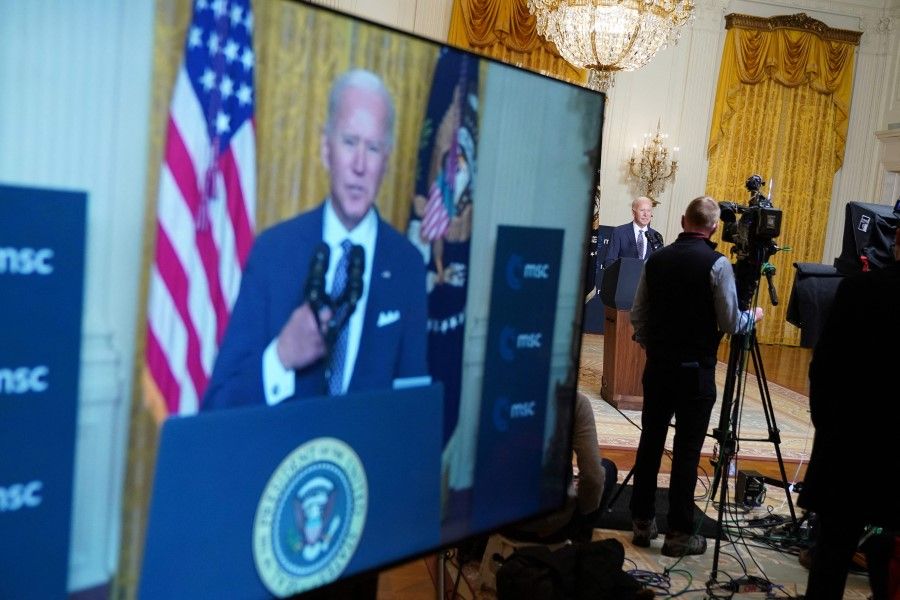
Le Monde columnist Alain Frachon wrote a piece saying that when it comes to China, the interests of the US and its allies in Europe and Asia may not be aligned, and if there is conflict between China and the US, Europe would tend towards neutrality. A recently released study by European think tank the European Council on Foreign Relations (ECFR) also showed that most respondents from EU member countries do not want their countries to follow the US in opposing China.
Germany's reliance on Chinese exports has become part of its economic formula, in which traditional industries - mainly automobiles - occupy a central role.
Germany will be voice of reason
Finally, Germany has become the stabiliser to check Biden's plan to join with the EU against China. Economy and trade (including investment and technology transfer) are the most likely areas of cooperation between the US and the EU against China, and is also the most likely areas where Germany and the US can take the lead in international economic regulations to oppose the Chinese economic model. But Germany is also the least willing to join the US in taking tough measures against China. As the main foreign-policy maker in the EU, guiding the latter's China policy, Germany's stance also means that Biden will not be able to get the EU's full support for taking any extreme measures along the lines of the ones implemented during the Trump administration.
Germany's stabilising function is a result of the close link between the German and Chinese economies. Germany's reliance on Chinese exports has become part of its economic formula, in which traditional industries - mainly automobiles - occupy a central role. While Germany is aware that this state of affairs needs to be rectified, it will not happen overnight. Piotr Buras, an expert on Germany in the ECFR, believes that Germany's attitude towards China is based on geoeconomics rather than geopolitics, and it will be difficult for Merkel's successor to change this economic relationship in the short term. It follows that Germany can only be a bystander in the China-US conflict.

But Germany is also on its guard against China. After China's Midea Group acquired German robotics manufacturer Kuka, Germany has been wary of investments from China. In 2019, the German government announced its new industrial strategy, where foreign investors in sectors including artificial intelligence, robotics, semiconductors, biotechnology, and quantum technology would have to make public any purchases of 10% or more and be subjected to government review and approval. And in December 2020, the federal government stopped the China Aerospace Science and Industry Corporation (CASIC) from acquiring IMST, a medium-sized satellite and wireless communications firm in North Rhine-Westphalia.
Capitalists will fill their coffers while evangelists get nothing. Leveraging on the economy has always been the Chinese's effective tool to divide the West.
However, no matter how wary Germany is of China, it will not impose export controls through an Entity List like the Trump administration. And no matter how much Germany wants China to open up, it will also not exert tariff pressures to get China to change its economic model like Trump. This means that Germany will take a mild stance in working with Biden against China. In fact, Biden also does not approve of Trump's extreme measures. Biden's cooperation with the EU against China will be a case of "cooking" a frog in tepid water - containing China with international law. Can that work?
The Trump administration's extreme measures did not change China. Can Biden and the EU change the ways of the Chinese government? The US has failed to change China, neither did it upset China. China will continue to firmly tread the path of socialism. Its expanding economy is a huge magnet for Western countries. Capitalists will fill their coffers while evangelists get nothing. Leveraging on the economy has always been the Chinese's effective tool to divide the West.
The West's isolation of China in terms of values and ideology has little impact on China; in this era of economic globalisation, economic benefits come before values. Former US trade representative Robert Lighthizer wrote in Foreign Affairs in July 2020 that "where China is concerned, the interests of the United States and its allies are not necessarily aligned", and "getting US allies to take bold, concerted action is easier said than done". The Biden administration working with the EU against China is a pipe dream. On 4 February, French President Emmanuel Macron said the EU should not gang up on China with the US - another slap to the face of the Biden administration from the EU.
Related: America and Europe are coming together against China, but will it work? | Germany's China policy: Will economic interests override values? | Chinese academic: China-EU investment deal is of great strategic value to China | Securing its place in the world economic order: The EU can't afford to wait for the US
